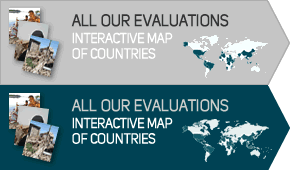February 4, 2009
Mid term Evaluation of the WFP Country Programme in Mozambique
DARA’s evaluation of the WFP Country Programme in Mozambique has found that the school feeding programme has been effective in terms of access to and retention in education. However, although it accelerates already positive tendencies, the programme is not enough of an incentive to reverse high drop out or low enrolment levels.
Members of DARA were commissioned to assess the degree to which the WFP Country Programme’s objectives in Mozambique pursued between 2007 and 2009 had been achieved.
The WFP Country programme aims to:
- Support access to education and reduce gender disparity
- Strengthen countries and regions capacities to establish and manage food-assistance and hunger-reduction programmes
- Support the improved nutrition and health status of children, mothers and other vulnerable people
The findings indicate that the programme has provided families or caregivers with incentives for sending girls, orphans and other vulnerable children (OVCs) to school and ensuring that they do not drop out. However, the design of the School Feeding programme has had negative effects on efficiency. Logistics support is costly, requiring substantial human and financial resources and coordination. This is mainly due to countrywide distribution, which involves the transport of small amounts of food over large distances.
The report highlighted the need for identifying a more replicable model for school feeding that would facilitate the inclusion of such into the Government’s sector strategic framework. It concludes that sustainability will depend on the Ministry of Education and Culture’s political and financial commitment.
DARA’s evaluation approach was based on identifying the main issues related to programme performance that could help improve existing and future interventions. The evaluation followed the WFP’s Evaluation Quality Assurance System (EQAS) and UNEG’s evaluation criteria focusing on relevance, effectiveness, efficiency, impact and sustainability. Data collection was based on interviews and analysis of secondary data related to CP activities. The two-man evaluation team carried out its mission from 19 October to 1 November 2008.
Mozambique remains among the world’s poorest countries. The country has one of the highest rates of child malnutrition in Africa: approximately 1.3 million children are chronically undernourished and chronic malnutrition among children under the age of five is still extremely high, at 41 percent.
Download Summary Evaluation Report Mozambique Country Programme
Download Full Report of the Evaluation of the Mozambique Country Programme (2007-2009)




Share this